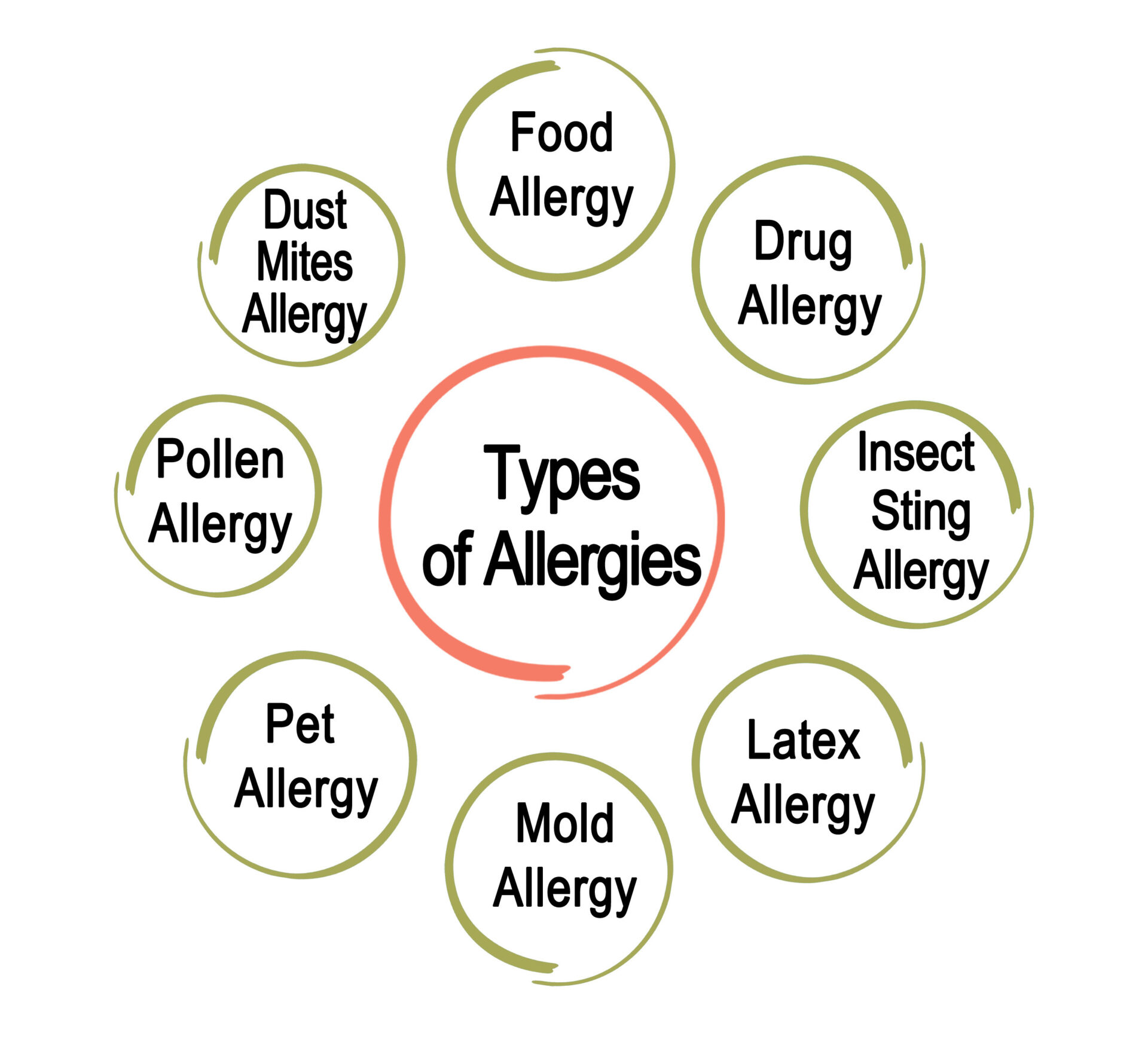If you’re struggling with unexplained sneezing, itchy eyes, hives, facial swelling, swelling in the throat, congestion, and other similar symptoms, you’re not alone. Millions of people struggle with allergy symptoms, but many don’t know exactly what’s causing them to appear. And knowing you’re allergic to something but not knowing what can be frustrating, confusing, and even a little scary.
The good news? Identifying your triggers is possible (and easy!) with the right steps.
Today, we’re exploring common allergy culprits, showing you how to narrow them down, and providing the steps you need to follow to finally get relief.
Why Identifying Your Allergy Triggers Matters
Allergy symptoms can be disruptive and exhausting, but pinpointing the cause is about more than just comfort. Without knowing your triggers, you may:
- Continue to suffer from symptoms without relief.
- Experience worsening allergic reactions over time.
- Risk experiencing severe reactions like anaphylaxis.
- Miss out on targeted treatment options that could help you find relief.
By understanding the cause of your allergy symptoms, you can protect your health and enjoy a better quality of life.
Common Allergy Triggers

Allergies can be triggered by a wide variety of particles or substances. Some of the most common allergens include:
- Pollen: Seasonal allergies are commonly triggered by the pollen from trees, grasses, and weeds.
- Dust mites: These microscopic bugs thrive in bedding, carpets, and upholstered furniture and torture those with a dust mite allergy.
- Mold: Fungal spores grow in damp environments, such as bathrooms and basements, and cause allergy symptoms in people who are allergic to them.
- Pet dander: The proteins found in the skin flakes, saliva, and urine of cats, dogs, and other animals will trigger reactions for those with a pet dander allergy.
- Foods: The proteins in certain foods, such as peanuts, shellfish, milk, eggs, soy, or wheat, can trigger dangerous reactions, such as throat swelling, airway restriction, and hives.
- Insect stings: The venom in bee or wasp stings can cause mild to life-threatening allergic reactions, similar to those of a food allergy.
- Medications: Antibiotics, aspirin, and other drugs may trigger allergic responses in some individuals.
Because allergy triggers vary so widely, it’s not always easy to figure out what’s behind your symptoms on your own.
Recognizing Your Symptoms
Allergy symptoms can range from mild to severe. When you feel your allergies flaring up, pay attention to when, where, and/or how they appear:
- Nasal allergies: Temporary sneezing, runny or stuffy nose, and postnasal drip that is not accompanied by fever, body aches, or other cold- or flu-like symptoms.
- Eye allergies: Red, itchy, watery eyes that are not accompanied by other tell-tale signs of a fever or a cold.
- Skin allergies: Hives, rashes, itching, or swelling anywhere on the body, including the face.
- Food allergies: Stomach pain, nausea, swelling of the lips or tongue, and difficulty breathing.
- Severe reactions (anaphylaxis)*: Trouble breathing, dizziness, rapid drop in blood pressure
*Anaphylaxis is a medical emergency—contact 911 ASAP if you or a loved one ever experiences severe allergy symptoms. If you know anaphylaxis is a possible reaction for you, always have epinephrine (like an EpiPen) with you in case of an emergency.
Keeping track of your symptoms can help you and your allergist connect the dots.
How to Zero In on Your Allergies
If you don’t know what’s causing your allergies, here are steps you can take to narrow it down:
1. Track Your Symptoms
Keep a diary of your symptoms. Note the time of day, location, what you were eating, and your activities. Patterns often reveal potential triggers.
2. Pay Attention to Seasons
If your allergies flare up during spring or fall, pollen could be to blame. Year-round symptoms may point to indoor allergens like dust or mold.
3. Consider Your Environment
Notice if your symptoms get worse at home, work, or outdoors. For example, pets at home or mold at work could explain recurring issues.
4. Rule Out Non-Allergic Causes
Sometimes symptoms mimic allergies but aren’t caused by allergens. Irritants like smoke, fragrances, or pollution can trigger similar reactions.
Allergy Testing Is The Key to Finding Answers
While observation helps, the most effective way to identify your triggers is through thorough allergy testing. A skilled allergist can recommend tests such as:
- Skin prick tests: Tiny amounts of allergens are applied to your skin to see if a reaction occurs.
- Blood tests: Blood samples are tested to measure your immune system’s response to specific allergens.
- Challenge tests (under medical supervision): You consume or inhale a suspected allergen in a controlled setting to confirm the reaction.
Testing provides clarity, taking the guesswork out of your symptoms.
Treatment Options Once You Know Your Allergies
Once your triggers are identified, your allergist will work with you to create a specific, individualized treatment plan. Options include:
- Avoidance strategies: Minimizing exposure to your allergen (e.g., using HEPA filters, dust-proof bedding, or dietary changes).
- Medications: Antihistamines, decongestants, eye drops, and nasal sprays can ease symptoms.
- Immunotherapy: Allergy shots or sublingual tablets help retrain your immune system over time, reducing sensitivity.
- Emergency action plans: For severe allergies, carrying epinephrine (EpiPen) is essential.
With the right approach, you’ll find your way to significant allergy relief.
Do You Know You’re Allergic to Something, But You Don’t Know What? Schedule an Appointment With Langford Allergy.
Dr. Langford, Dr. Mathew, and our team of allergy specialists provide comprehensive allergy care to patients in and around the Middle Georgia area. Schedule an appointment for allergy testing and allergy treatment that will provide clarity and bring about the relief you need.
Schedule an allergy consultation today: 478-787-4728
Langford Allergy delivers allergy, asthma, and immunodeficiency care to patients throughout Middle Georgia, including:
- Bonaire, GA
- Byron, GA
- Forsyth, GA
- Fort Valley, GA
- Gray, GA
- Macon, GA
- Milledgeville, GA
- Perry, GA
- Warner Robins, GA
And other surrounding areas.
Recent articles:
